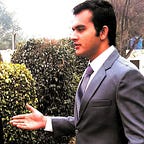Money Laundering: Independent review in context of Pakistan
The current era of globalization has made the global economy, the global village more interactive, interconnected, unified and organized, a means of simultaneous development but this development has opened the floodgates of ease and prosperity for human beings to criminals.
Less developed economies and especially developing and informal economies like Pakistan are more at risk of falling into the clutches of money launderers because developed economies have strong financial controls and effective laws to monitor the activities that pose these risks.
Weak financial systems and frail controls make it a crime in developing countries. Interpol’s definition of money laundering is that ‘every effort is made to conceal illicit earnings which show that this income is legitimate’.
Money laundering is a heinous crime that is partisan and well-executed. This crime is not against any one individual but against the nation, economy and rule of law which worsens the social, political and economic condition of the country.
Analysis:
Money is made from heinous activities like terrorism, illegal sale of arms, internal trade, speculation, prostitution, embezzlement etc. and it is transferred to safe havens.
To understand money-laundering, it is divided into three stages.
Placement
This stage can be considered as the initial stage. At this stage, the illicit money is derived from its source and divided into several parts and these parts are deposited separately in different types of banks and financial institutions at different times. Investments are made in different places. In simple words, money is spread everywhere. Because of the large amount of money that is distributed, officials are less likely to be vigilant.
Layering
As the name of this stage shows, money is transferred from one account to another and from one bank to another. In addition, the money is invested in various financial instruments and then sold, and the proceeds are diverted to more complex locations, including digital banks and cryptocurrencies. The world’s prime money launderers throw so much money into a financial market that they run the market at will and make a profit on the profits.
Integration
At this stage, money launderers reintroduce funds into the economy. After the learning phase, this amount is converted into land purchase, commodity purchase or expensive assets, etc. When money is integrated, it is very difficult to hold it, even it becomes impossible. Therefore, it is very important to track down the money before entering this stage and decide on the punishment for it.
The phenomenon of money laundering, amongst other economic and financial crimes have had better success in infiltrating into the economic and political structures of Pakistan therefore resulting to economic digression and political instability. Although, Pakistan has responded and continue to respond, through legislative measures, to the menace of money laundering, at national level, however, money launderers, have exploited the tax regulatory environment, vulnerable financial systems along with persistence civil and political unrest of Pakistan.
If you talk about Pakistan critically, the tactlessly ignorant bureaucracy in Pakistan, the crooked governments, the judiciary and weak institutions, and the very strong military that receives its stake, have all washed their hands of this flowing Ganges.
Pakistan’s weak establishments, incompetent authorities, made money out of the mountain of corruption, which was exposed in 2016 by a data leak known as the ‘Panama Papers’. These odious crimes have given rise to terrorism, bigotry, prostitution, unemployment and hunger in Pakistan and have severely spoiled Pakistani social values.
A common myth associated with the concept of money laundering is that black money and money laundering are two names for the same thing, but in reality, they are two different crimes. Like an interview aired on the BBC in which a former Pakistani finance minister who proudly calls himself a UK qualified chartered accountant and turns to tax returns to cover up his crime knowing the amount. Not paying taxes is called black money. Black money can be earned through legitimate means, but when it is hidden from the tax authority so that it does not have to be taxed, it becomes black money. Corruption and money laundering are largely diverted from the national economy to the developed world. Then the same or partial amount is returned to the base country as a loan to one’s own advantage and to the detriment of the nation.
